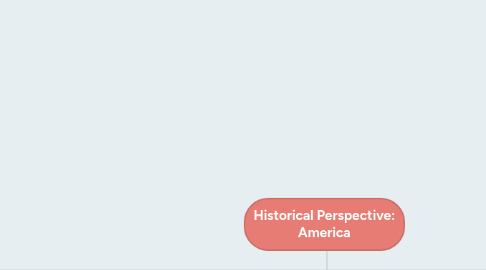
1. ”I Hear America Singing” by Walt Whitman
1.1. Tone: Powerful
1.1.1. Text Evidence: "I hear America singing the varired carols i hear, those of machines, each one singing his at should be blithe and strong."/Whitman/ The way the auther would sound if he read this aout loud is confident and strong this tone is powerful
1.1.1.1. Mood: Thankful
1.1.1.2. Text Evidence: "Each singing what belongs to him or her and none else" /Whitman /" Singing with open mouths their melodious songs"/Whitman / the mood is thankful because everyone is talking about how they have these things and how it belongs to them and they are thankful they are not singing about things that they want but things that they have making the text set a mood to make you fell thankful
1.1.1.2.1. Who is considered a part of this America: The people who work are considered part of America the text only talks about people who have jobs and work how they are working and what they have this is about people singing about what they have but they are not including people who don't have jobs making it seem like they do not have anything to sing about because they don't have anything, people who have jobs are supposedly better. "The delicious singing of the mother or of the young wife a work or a girl sewing or washing."/Whitman / The text is referring to people who are working, but don't talk about people who do not work.
2. By Nicole Bagala and Maddison McManus
3. “I, Too, Sing America” By Langston Hughes
3.1. Tone: Confident
3.1.1. Text Evidence: “But I laugh, / and eat well / and grow strong” (Hughes 5-7). The writer, if he were reading his poem out loud, would sound confident when he reads this piece of text.
3.1.1.1. Mood: Inspired
3.1.1.2. Text Evidence: “Tomorrow,/ I´ll be at the table/ when company comes./ Nobody´ll dare/ say to me, / “Eat in the kitchen,”/ then” (Hughes 8-14). The narrator, even with his unfair treatment, still has hope that he will be able to sit at the table with everyone else, and no one will send him away. The narrator still having faith in sitting with everyone else despite his skin color is very inspirational.
3.1.1.2.1. Who is considered as a part of this America?: People who have white skin are considered American because the poem reads, “I am the darker brother./ They send me to eat in the kitchen/ when company comes” (Hughes 2-4). That means that the white Americans treat the darker skinned Americans unfairly; they have the narrator eat in the kitchen while everyone else eats at the table. However, the poem also says, “Tomorrow,/ I´ll be at the table/ when company comes./ Nobody´ll dare/ say to me,/ “Eat in the kitchen,”/ then./ Besides,/ they´ll see how beautiful I am/ and be ashamed-/ I too, am America” (Hughes 8-18). That means the narrator knows that someday the white Americans will let him eat at the table instead of the kitchen, and they´ll be ashamed for not seeing the narrator as an American before.

